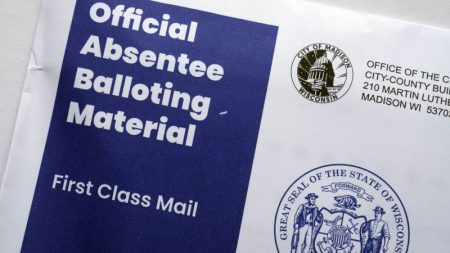Protecting Social Security is among the top promises that former President Donald Trump and the Republican National Committee say they’ll “accomplish very quickly” if they win control of the White House and Congress in November’s election.
“FIGHT FOR AND PROTECT SOCIAL SECURITY AND MEDICARE WITH NO CUTS, INCLUDING NO CHANGES TO THE RETIREMENT AGE,” the platform reads.
However, this promise leaves Trump and the GOP with few options to address the looming shortfalls in both entitlements programs. The solutions floated typically include cutting or slowing the growth of benefits, raising the retirement age or hiking payroll taxes either by increasing the rate for everyone or lifting the threshold on income subjected to the levy – though Republicans have generally been opposed to raising payroll taxes.
“It’s not a genuine policy prescription to save Social Security,” Jason Fichtner, chief economist at the Bipartisan Policy Center and former acting deputy commissioner of Social Security, said of the party platform. “It avoids putting up any changes for another four years. That just means that any changes that we have to do will be larger.”
Congress doesn’t have a lot of time left to figure out how to save the beloved programs. The combined Social Security trust funds – which help support monthly payments to the elderly, survivors and people with disabilities – are expected to be exhausted in 2035, according to its trustees’ annual report. After that, payroll tax revenue and other income sources will only be able to cover 83% of benefits owed. Medicare’s hospital insurance trust fund, known as Medicare Part A, will only be able to pay 89% of scheduled benefits in 2036.
By promising not to cut Social Security benefits or change the retirement age, which many advocates consider a benefit cut, Trump is not leaving himself any wiggle room, said Andrew Biggs, a senior fellow at the American Enterprise Institute, a right-leaning think tank.
“Donald Trump’s preference is to never cut benefits for anyone at any time, which just mathematically means a lot more money going into the program,” said Biggs, who served as the principal deputy commissioner of the Social Security Administration before joining the institute.
Shoring up Social Security by increasing revenue would require a sizable tax increase. The program’s trustees calculated that the payroll tax rate would have to immediately increase by 3.33% to 15.73% or, if nothing is done until the trust funds are depleted, the hike would be 4.02% to 16.42%.
Likewise, Medicare’s payroll tax would would have to immediately increase from 2.9% to 3.25%, according to its trustees.
President Joe Biden has also promised not to cut benefits. Instead, he has proposed raising taxes on higher-income Americans to put the entitlement programs on firmer financial footing. While he has released a more concrete plan to address Medicare’s solvency problem, he has provided fewer details on fully fixing Social Security’s fiscal woes.
Both candidates have painted themselves into a corner by saying they won’t cut benefits, said Biggs.
“Never before have the two parties’ presidential candidates been closer in their positions on Social Security,” he said.
Read the full article here















